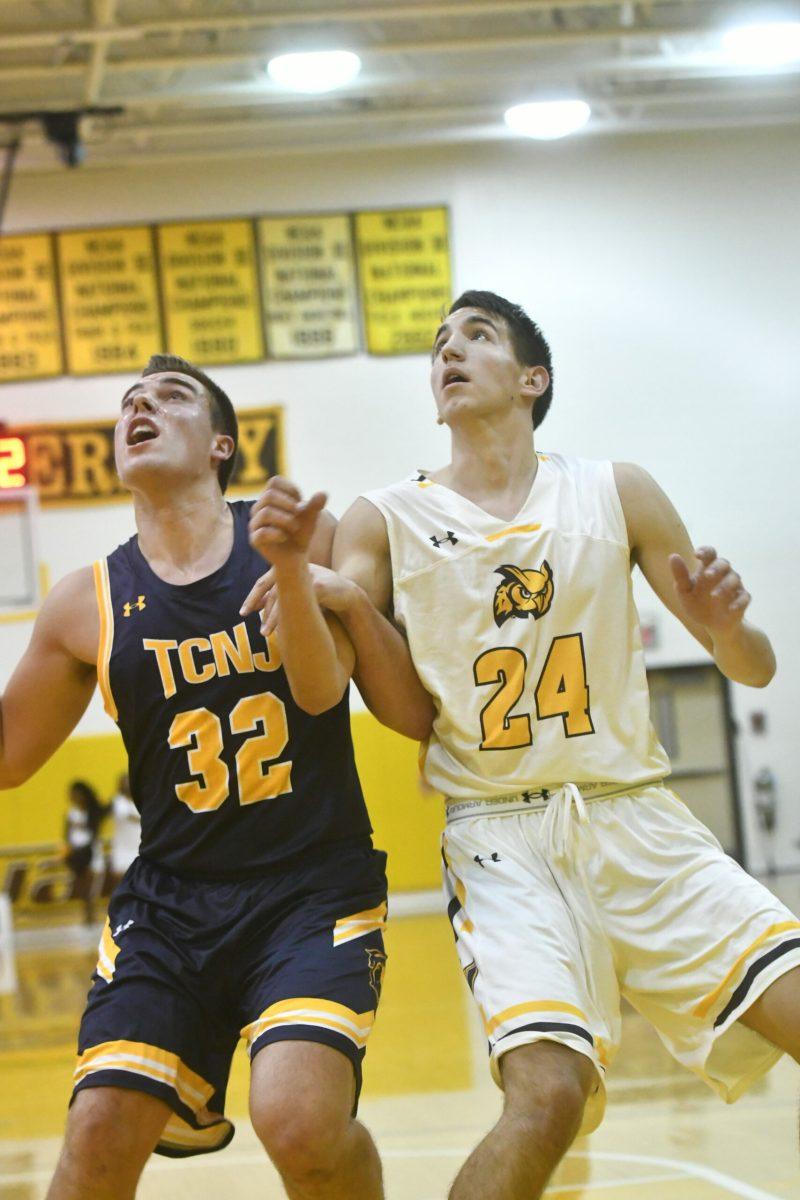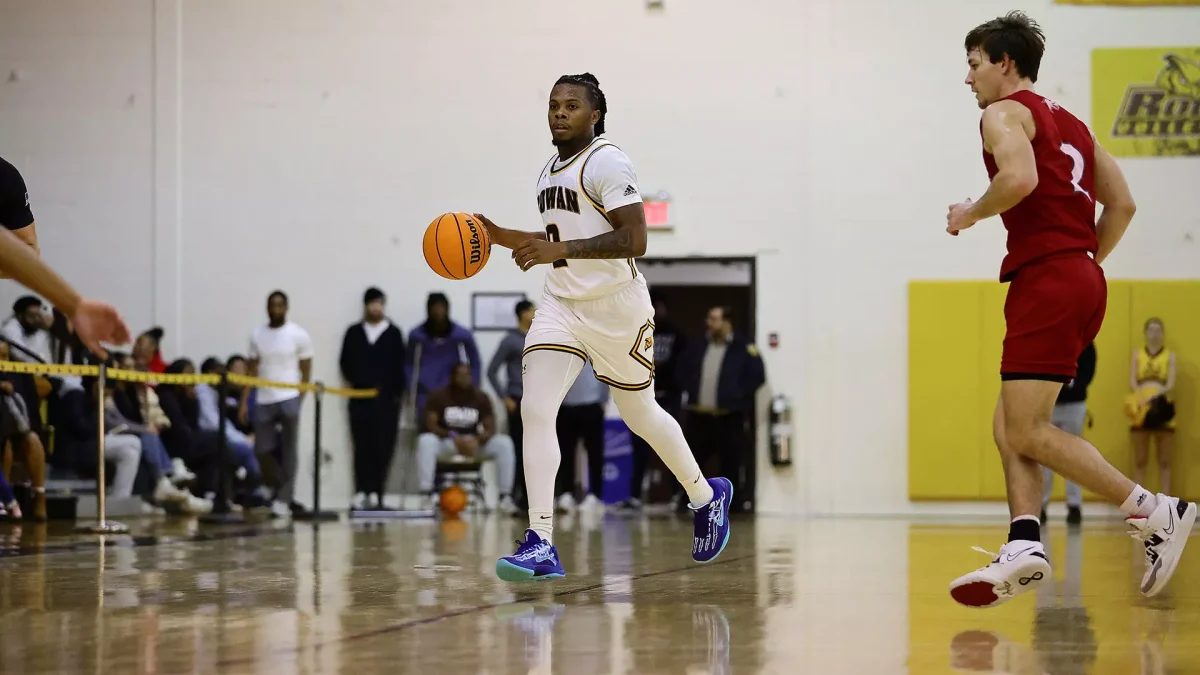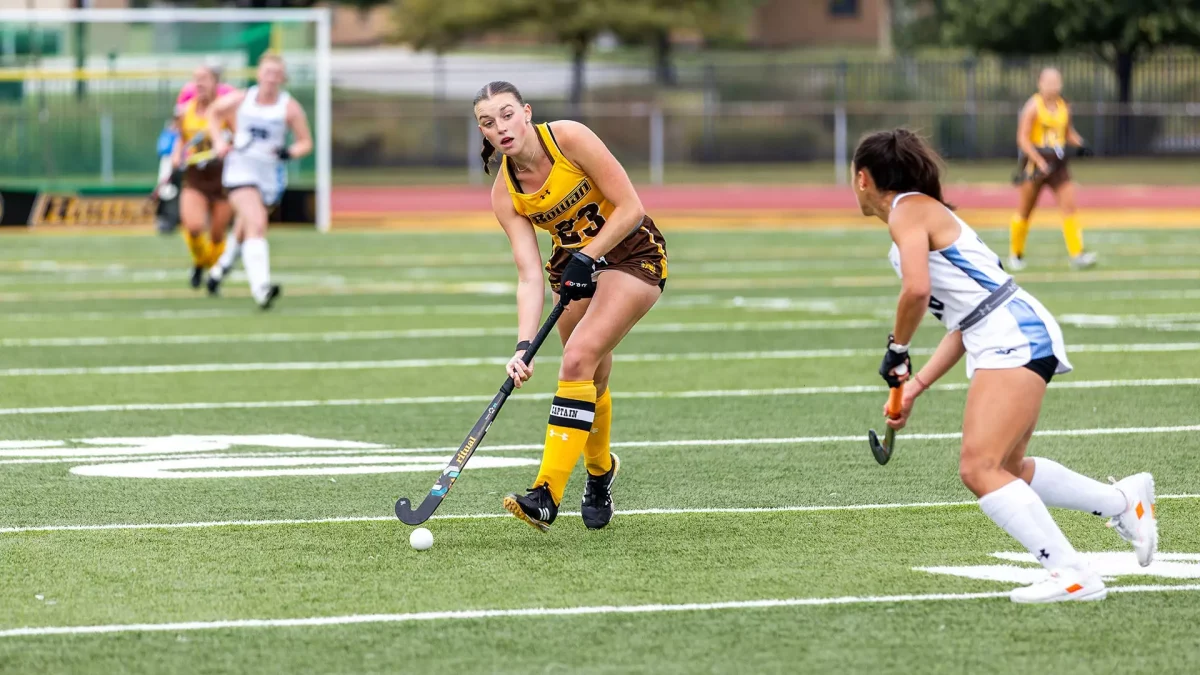Nikola Jokić.
Bogdan Bogdanović.
Nemanja Bjelica.
The sport of basketball has strong international roots.
In the NBA, much is made about international phenoms entering the draft, shrouded in mystery to the average American basketball fanatic.
Scouts know better.
International players are lauded for their ability to play fundamental, team-first basketball. They arrive with an uncanny mystique, as if their arrival from a “far-off land” endows the player with a monolithic skill-set and basketball intelligence.
What drives the migration of international athletes to the states?
Marko Pantovic, Rowan basketball’s native Serbian, came to America – the self-proclaimed land of opportunity – for just that:
Opportunity.
For the 6’7” sophomore forward, the chance to receive a college degree while playing the sport he loves was too great to pass up. But he wasn’t the first in his family to move to the States in pursuit of his dream. Before him, his older brother and sister played college athletics stateside.
“I saw what they were going through,” Pantovic said. “Since freshman year of high school, I wanted to do that.”
Pantovic came to the U.S. enthusiastic about the opportunities that lay ahead and brought the stereo-typical high basketball I.Q. along with him.
“There’s some things I could show you on film that really stand out to me that are just incredibly impressive,” said Rowan head coach Joe Crispin. “He knows how to move in space. He knows how to cut. He knows how to run. Just great scoring actions. That’s how he’s been raised in basketball overseas.”
The club culture of Serbian basketball promotes intense discipline within its players with an intense practice regiment featuring six or seven practices a week, including two-a-days.
“Club basketball is kind of like AAU here,” Pantovic said. “When I was asking around my teammates about high school and everything, they said in high school they only had maybe one or two, three practices per week for their high school team. The club teams back home, you’d have six or seven during the week. So every day, some days you’d have two. So it was just something you’d get used to. It was good. Was a great experience for sure.”
The slower-paced style of play, bereft of fast-break transition-scoring, promotes fundamental play and ball movement. This style also leaves Pantovic with room for growth, as he experiences a play style foreign to the way he had been brought up in his formative years with the sport.
Marko spent his youth playing the national sport of soccer, along with basketball and volleyball. He has fond memories of his childhood in Belgrade, Serbia, where he could walk out the front door and immediately play soccer. Pantovic attributed this to fewer roads in Belgrade than in suburban America, where everything is motor-vehicle accessible.
“I don’t know how to say [what] the difference was,” Pantovic said. “I have no experience growing up here. Back home, it was good. It wasn’t any rough times. I guess the difference is basically, as a kid you could walk out of your house, your building and played where you want. You wouldn’t have roads everywhere like here. Everything was kind of accessible. Especially the part where I grew up. It was a good childhood.”
Pantovic had influences surrounding him in the household when it came to playing sports, ranging from basketball to volleyball.
“I had an older brother, he always gave me a basketball,” Pantovic said. “Basketball was always with me but soccer is the biggest sport in Serbia, biggest sport [in] Europe. I would always play soccer going outside. Volleyball was big too, I liked volleyball a lot. I played it for my high school because my sister played it. It’s a fun, non-contacting sport.”
Pantovic is a big fan of the NBA and followed along as the league began introducing itself to Serbian audiences in the early 2000s with Serbian fan-favorites Vlade Divac and Peja Stojaković. A big hurdle to following the league are the time differences, as game broadcasts might begin as early as 2 or 3 a.m.
“It was difficult to just stay up and watch it, but for some games, you just had to,” Pantovic said.
Following Marko’s graduation from Zemun High School, he moved to the States, attending Maryville University just outside St. Louis, Missouri. Although he loved the university, his teammates and his classmates, it wasn’t an ideal fit from a basketball perspective, as he was pigeonholed at the center spot due to his height while disregarding his other skills.
“It wasn’t a fit to be honest, basketball-wise,” Pantovic said. “School and the people there were amazing. I was kind of, I don’t want to say forced, but I was expected to play center. I don’t know, it just wasn’t it. I was looking to transfer as soon as the season ended. My brother had just moved here recently, which is why I contact schools nearby. Coach Crispin was a person who emailed me back by the end of the day, which was pretty amazing. We met and it was a great feeling.”
Pantovic, averaging 3.5 points and 3 rebounds in just under 15 minutes thus far, played a season-high 21 minutes during Saturday night’s 76-68 loss to New Jersey City University and will look to continue growing his game in the upcoming months and years.
“He’s just scratching the surface,” Crispin said. “He’s got a bright future for us for sure.”
For comments/questions about this story, email [email protected] or tweet @TheWhitOnline.























































































































































!["Working with [Dr. Lynch] is always a learning experience for me. She is a treasure,” said Thomas. - Staff Writer / Kacie Scibilia](https://thewhitonline.com/wp-content/uploads/2025/04/choir-1-1200x694.jpg)









































